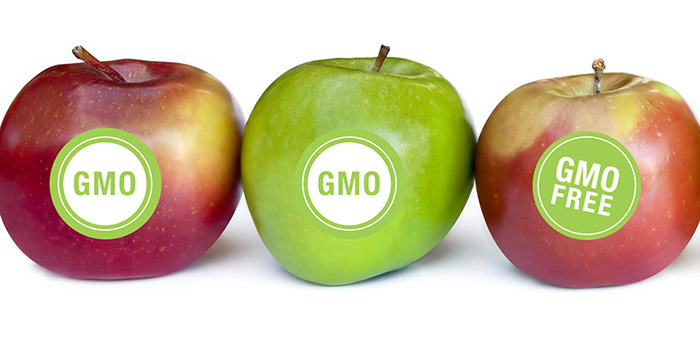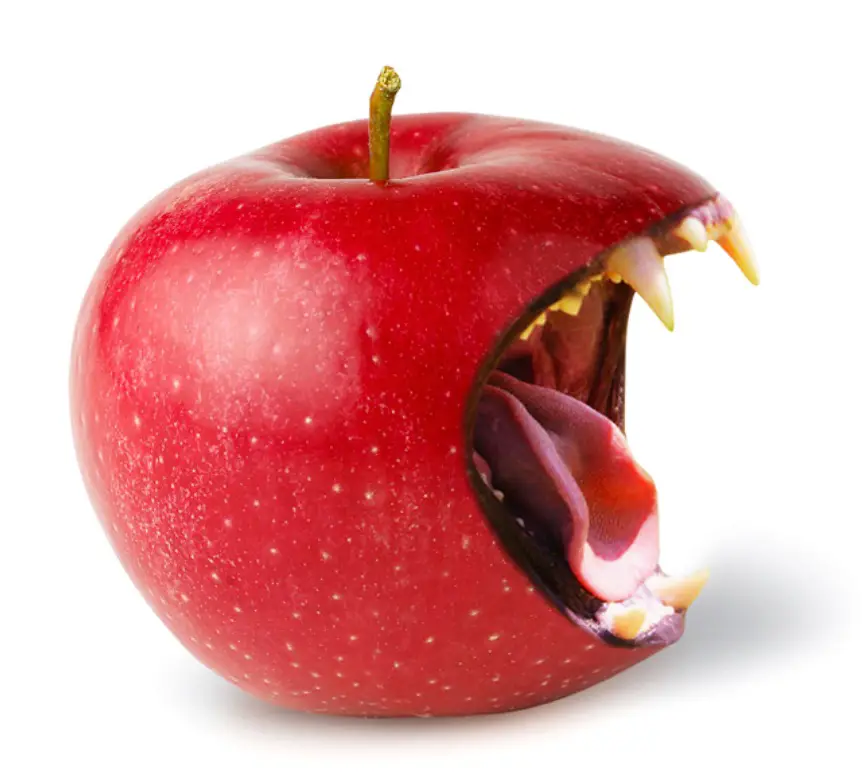Health
FDA Just Approved 3rd GMO Apple

The term forbidden fruit just took on new meaning. The FDA has just approved the third genetically modified apple for commercial sale.
Arctic Granny and Arctic Golden apples were approved last year amid public scrutiny, and now Arctic Fuji apples will soon be added to the list of biotech fruit available on grocery store shelves. All three varieties were created by the Canadian biotech company Okanagan, as a means to offer non-bruising or non-browning apples to the public, but many experts say that taking away this genetic trait of traditional, non-GMO apples isn’t such a great idea.

Many claim that this genetic tinkering with apples for mere cosmetic reasons is blasphemous. Sure, large grocery stores need to reduce food waste, but many are embracing the idea of ‘ugly’ fruit, and selling it at a reduced cost in order to address key problems the world faces: food waste, and high rates of hunger.
Another biotech talking point is that we ‘don’t have enough food’ to feed the world, but we are throwing away almost half of all the food that is grown, cooked, shipped, and carried home to our tables every year.
Sadly, currently 1 in 5 fruits grown don’t fit a grocery store’s requirements for sale. If they are crooked, curvy or bruised, they are seen as unfit to eat, even though these non-GM fruits are perfectly full of nutrients and taste.
Some companies are embracing this idiotic habit of food sellers though, and bringing ‘ugly’ fruit and vegetables to markets for 30 to 50 percent less than their perfect companions.
These are among key reasons not to produce genetically modified apples, since they are one of the most commonly refused fruit – simply due to a few imperfections or bruises. Moreover, only 1 in 10 Americans currently even eats enough ‘perfect’ fruit and vegetables.
Another reason to be wary of the genetically modified fruit is its possible affect on non-GM fruits due to cross-pollination. Apples bruise because of oxidation, but it is also because they are full of citric acid, and other important nutrients which add to a fruit’s overall value as a food. If non-GM apples are contaminated through wind or pollinating insect cross-breeding, some of the nutrients we enjoy because an apple turns brown, will be lost.
As Scientific American explains:
“Discoloration of fruit results when an enzyme called polyphenoloxidase oxidizes the phenolic compounds that are found in the tissue of fruits. The oxidation causes the phenolic compounds to condense into brown spots. While the tissue, or cell structure, remains intact, the enzyme and phenolic compounds are separated and so do not react with one another. It is the breaking down of the cell structure caused by the bruising that initiates the oxidation reaction and so triggers the onset of browning.”
As researchers further detail, phenolic compounds are an important part of any fruit:
“The bioactivity of phenolics may be related to their antioxidant behaviour, which is attributed to their ability to chelate metals, inhibit lipoxygenase and scavenge free radicals.”
Okanagan says that they have had a very positive response from consumers regarding their GM apples, but Wenonah Hauter, executive director of Food & Water Watch, disagrees,
“Many big apple buyers don’t want this. Consumers don’t want this. It’s not only an unnecessary product, but the risks have not been fully examined. Regulators have glossed over the possible unintentional effects of this technology, including the potential economic impacts on farmers, the potential of contamination for non-GMO and organic apple crops and the potential impact of the non-browning gene silencing, which could also weaken plant defenses and plant health.”
The biotech industry is keen on selling ‘perfect’ fruit, but it was already perfect before they ever altered the fruits’ genes. Regardless of the possible larger imperfections of GM fruit, the FDA keeps giving the biotech industry a free pass to sell us nutritionally dead food.
Typos, corrections and/or news tips? Email us at Contact@TheMindUnleashed.com
